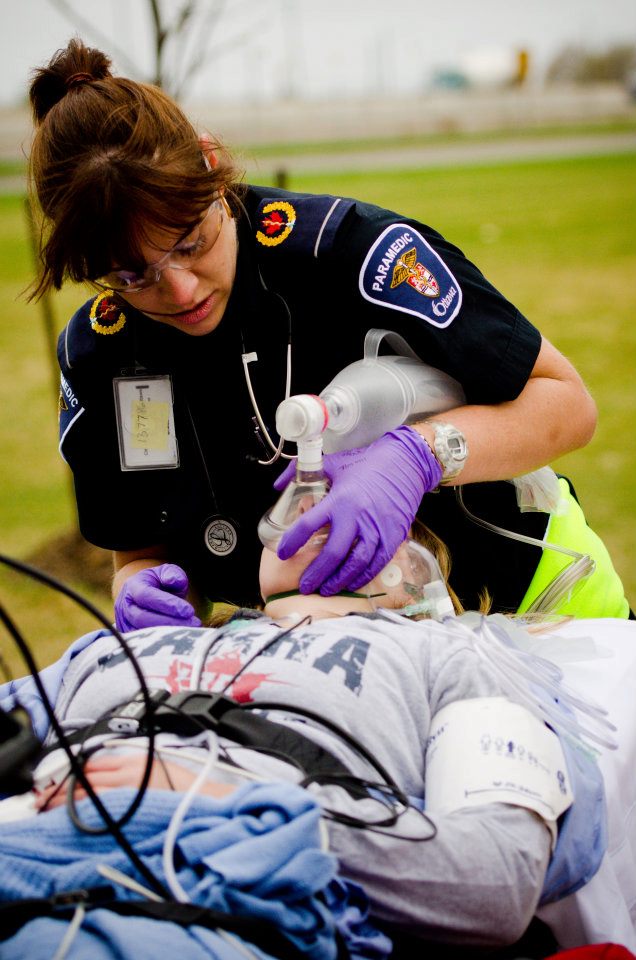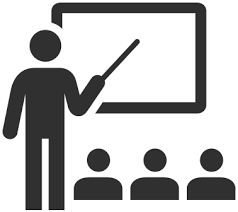
Advanced AED Rescuer
Saving the life of a Sudden Cardiac Arrest victim requires a well organized and rapid response. Every second counts. Within five minutes this person will lose about 50% of their chance to survive.
The Code Eight EMS Basic AED Rescuer program is designed for organizations that have an organized First Aid Team and has one or more AED’s (Automatic External Defibrillator) on the property.
Prerequisite for this program is Standard First Aid and Level ‘C’ CPR within the last two years. A mandatory online Level ‘C’ CPR review is included in the course.
This eight-hour program is mostly practical. Participants will learn to ventilate the patient with a B-V-M (Bag-Valve-Mask) and oxygen.
Approximately 3 – 4 hours will be responding to AED/CPR scenarios in various parts of the property. Our goal in this course is to prepare the First Aid Team to respond with a life-threatening emergency within 3 minutes of an emergency notification.
Registering for Blended Training Programs

Purchase Course

Complete Online Training

Call To Book In-Person Training
Enrolling in our Code Eight First Aid, CPR/AED and Control The Bleed programs is simple. Call our office (800) 203-4709 to book your course. We will send you a participant enrollment form which we need to set up the online portion of the course. Each participant will receive login instructions. Once everyone has completed the online segment we will proceed with the in-person practical training.
Course Fee is $1,700.00 Plus $221.00 (HST) = $1,921.00
Maximum of 12 Participants per Course
To Register for Bystander CPR please call our office (800) 203-4709
This course is designed for organizations with a First Aid Team and AED’s (Automated External Defibrillator) on site.
Understanding the Emergency Medical System and the role of a First Aider. First Aid definition and goals. Legal issues in rendering emergency care including the Good Samaritan Act.
Basic understanding of the circulatory system, narrowing arteries and high blood pressure. Angina and heart attack signs and symptoms. Recognizing possible stroke. Actions needed in a heart or stroke situation including assisting the victim with their own medications.
Sudden Cardiac Arrest results from a disruption to the heart’s electrical system. Understanding that this can happen to anyone, at any age, even with no previous heart conditions. Recognize the signs of cardiac arrest and understand that every second counts in providing rapid care. Chain of Survival.
Importance of Biohazards and using personal protective equipment. Scene survey to identify hazards to the rescuer and actions to make the scene safe.
Rapid assessment and actions for infant, child and adult CPR. Airway, compressions and ventilation. Single and Two Rescuer CPR. Importance of Team CPR.
Ventricular fibrillation (VF) and tachycardia (VT). AED is a simple, easy to use instrument that provides an electric shock to treat VF and VT. Importance of an Emergency Medical Response Plan.
Speed of action is essential. AED location. Understand the basic operation of the AED. Preparing the chest and electrode placement. Safety considerations and delivering the shock.
Recognize the difference between mild and severe choking. Understand the treatment options for conscious, unconscious and pregnant choking victims.
Recognizing that Post Traumatic Stress Disorder is a life changing illness. Importance of recognizing PTSD and getting help to deal with the stresses associated with emergency medical responses.
Ventilating the non-breathing Sudden Cardiac Arrest victim with a B-V-M (Bag-Valve-Mask) and Oxygen.
Optional topic. Presentation of manufacturer’s demo videos for the most popular AED units in Canada.